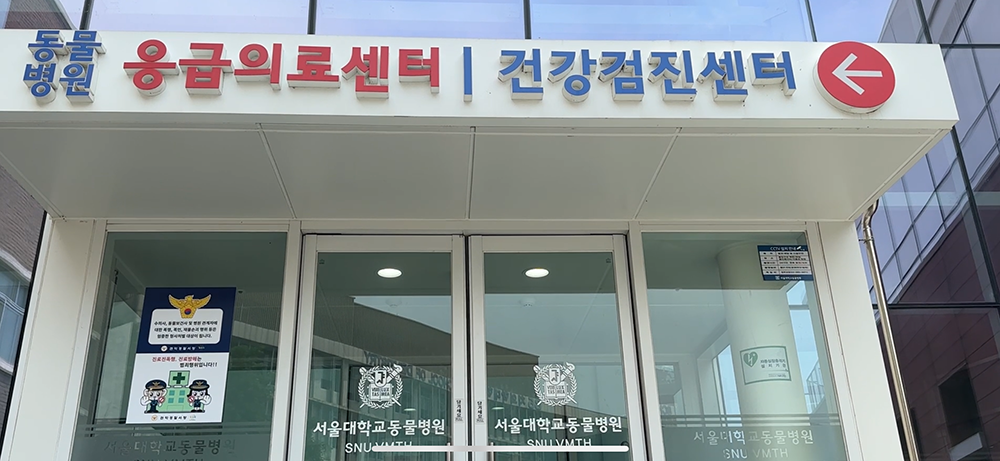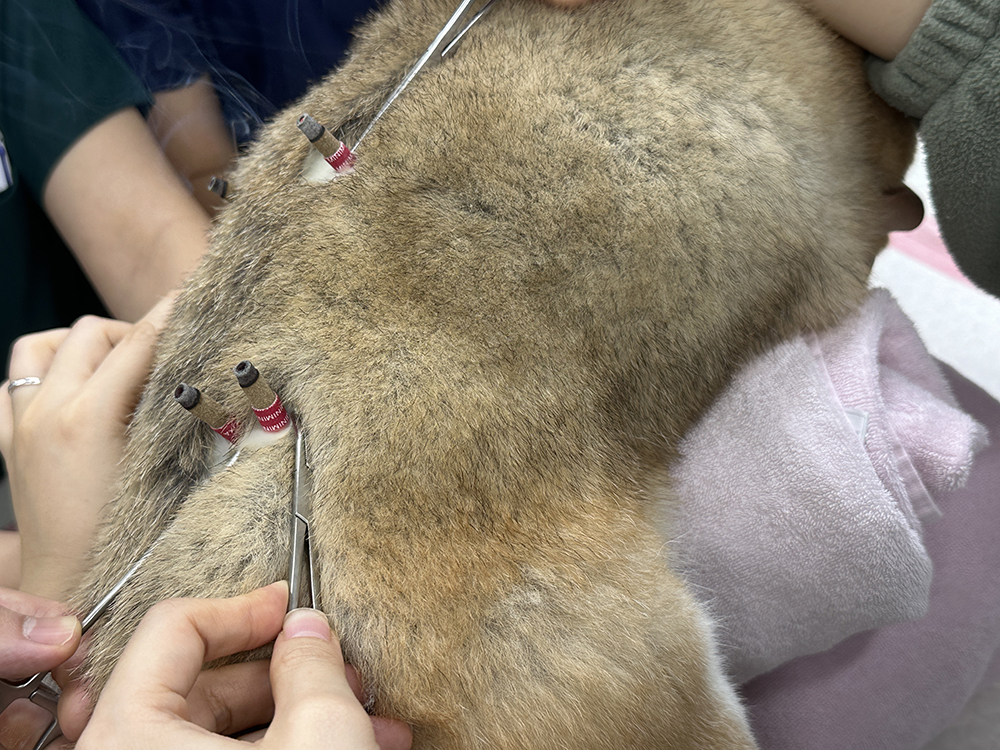Minju Kim - South Korea
This past summer, I had the pleasure to visit my home country, Korea, to study the differences in veterinary practice in Korea and the United States. While working at veterinary hospitals in the United States, I realized that my experiences were different from those that I observed while I grew up in Korea. I felt that veterinary medicine was taken with a different approach in Korea than in the United States, especially regarding euthanasia. Although there has been a steady increase in pet population and massive growth in pet related industries in Korea, pet euthanasia is not really a common topic or practice outside of the shelter setting. I wanted to research whether the lower prevalence of pet euthanasia in Korea is due to their traditional culture or if there were other factors playing in.
As part of my study, I also did an externship at the emergency department of Seoul National University Veterinary Medical Teaching Hospital. Seoul National University is Korea’s top veterinary school, and it is the first veterinary school to become AVMA accredited in Asia. Their veterinary hospital serves as a referral center for Seoul and its vicinity, and it is home to 12 specialties including wild animal medicine. I chose to do an externship at the emergency department because it is the department that is most likely to see critical cases and, as a result, consider euthanasia as an option for a sick pet. During the externship, I joined their 4th year students doing their 2-week clinical rotations. In the morning, we would have seminar sessions where the residents will lecture on various topics such as caring for a neonatal kitten and performing CPR. Then, we shadowed and participated in the cases that will come in to the emergency service. I got exposed to eastern medicine like moxibustion and herbal medicine. They even allowed us to participate in a necropsy of a feral cat that passed due to respiratory distress despite multiple rounds of CPR.

At the same time, I also interviewed veterinarians working in various practices to see what their opinion was on pet euthanasia. One common idea was that there was a strong tendency of Koreans to consider their pet as their own children. This led to owners thinking that electing euthanasia is like giving up on their children, and owners want to try everything they can before they consider euthanasia. Furthermore, there is a perception in Korea that those who do not have the financial stability to raise a child should not have a child, and veterinarians pointed out that this perception seemed to be spilling over towards pets as veterinary bills are relatively expensive compared to human medicine bills.


During my free time, I was able to catch up with my family, and we went on a road trip to various cities outside of Seoul. I also spent the weekend experiencing the modern culture of Korea like attending a K-pop concert and going to various pop-up stores around the city.
This global experience has been an opportunity to appreciate the cultural differences in different countries, and I believe that I can utilize what I have learned throughout the summer to my future career. As a veterinarian, you will meet a variety of clients coming from various cultural or socioeconomic background, which will affect their expectations from the veterinarian and the decision making process. I was also challenged to use the Korean language in a medical setting, which has been a personal goal as I plan to practice veterinary medicine in Korea in the future.

